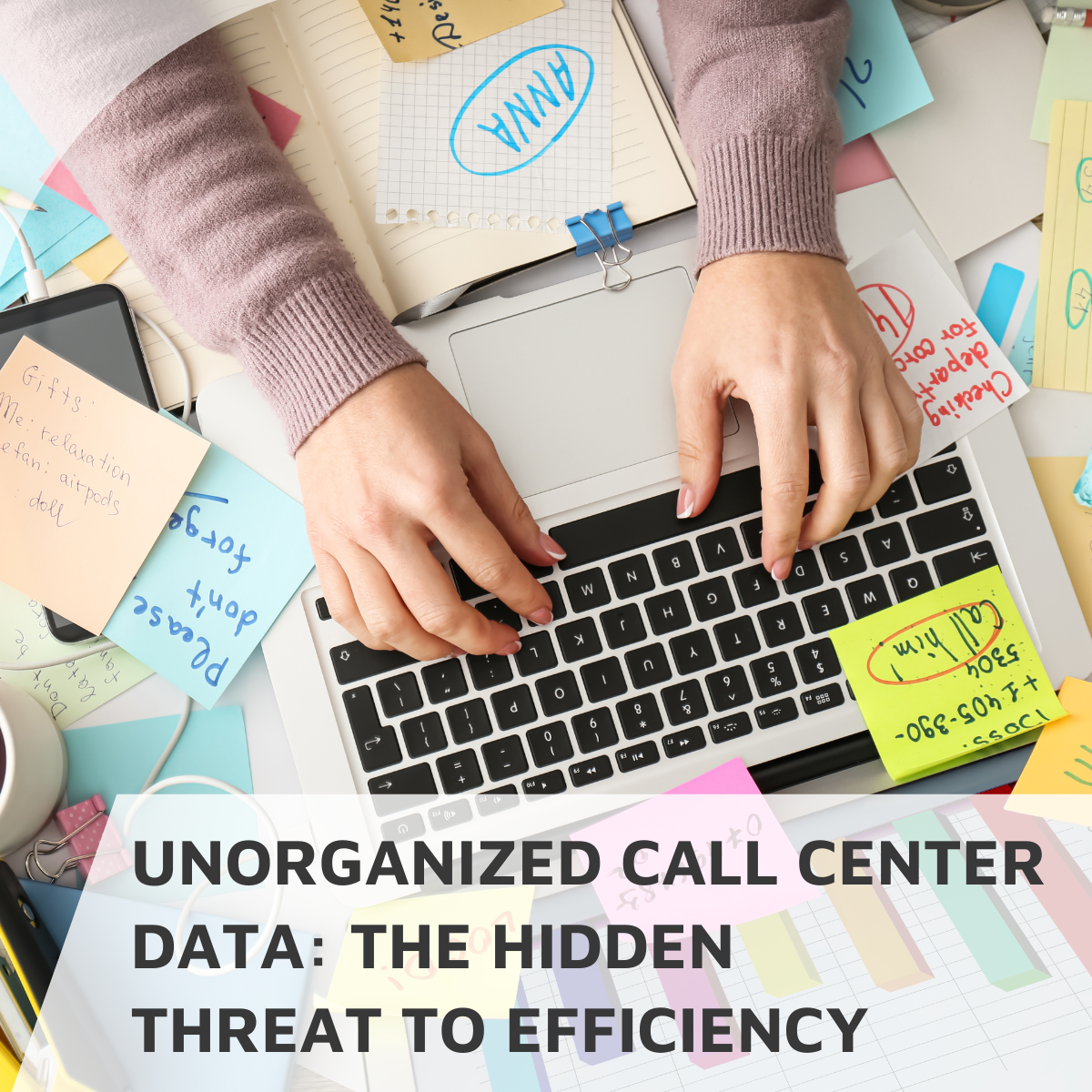In the fast-paced world of customer service, call centers are the front lines, the direct point of contact between a company and its customers. Every interaction is an opportunity to build loyalty, resolve issues, and gather valuable insights. But what happens when the very foundation of these interactions – data – is a chaotic mess? Unorganized data poses a silent but significant threat, capable of crippling a call center’s efficiency, customer satisfaction, and ultimately, its bottom line.
The Ripple Effect of Disarray
Imagine a call center agent, already under pressure to handle a steady stream of inquiries, faced with a customer’s urgent request. Now, imagine that agent has to sift through scattered spreadsheets, outdated CRM entries, and disparate systems to find the relevant information. This isn’t just an inconvenience; it’s a critical breakdown in service.
Eroding Customer Satisfaction
The most immediate and visible impact of unorganized data is on customer satisfaction. When agents can’t quickly access customer history, past interactions, or product information, resolution times skyrocket. Customers are forced to repeat themselves, leading to frustration and a perception of incompetence. This can quickly translate into negative reviews, churn, and a damaged brand reputation.
Hampering Agent Efficiency and Morale
For call center agents, a lack of organized data is a constant source of stress and inefficiency. Every extra minute spent searching for information is a minute not spent assisting a customer. This leads to longer call handling times, lower first-call resolution rates, and increased agent burnout. High stress levels and a lack of tools to do their job effectively can significantly impact agent morale, leading to higher turnover rates and the need for continuous, costly training.
Missed Opportunities for Insights and Improvement
Beyond the day-to-day operational hurdles, unorganized data prevents a call center from gleaning valuable insights. Trend analysis, performance metrics, and customer behavior patterns become nearly impossible to identify. Without this crucial information, management can’t make informed decisions to optimize processes, improve training, or develop new services. It’s like navigating a ship without a compass – you’re moving, but you don’t know where you’re going or if you’re on the right path.
Compliance Risks and Data Security Vulnerabilities
In today’s regulatory landscape, data privacy and security are paramount. Unorganized data increases the risk of non-compliance with regulations like TCPA. When customer information is scattered across various platforms, it becomes significantly harder to track, manage, and protect, opening the door to potential data breaches and hefty fines.
How Can We Help
The good news is that the dangers of unorganized data are not insurmountable. Addressing this challenge requires a strategic approach focused on data centralization, standardization, and intelligent utilization.
- Implement a Robust CRM System: Use CallShaper’s API, WebHook’s and native integrations to send the data your agents collect to your Customer Relationship Management (CRM). A CRM system is the cornerstone of organized call center data. It consolidates all customer interactions, purchase history, and personal information into a single, accessible platform.
- Standardize Data Entry Protocols: Use CallShaper’s scripting tool while establishing clear guidelines and training for agents on how to accurately and consistently enter data. This minimizes errors and ensures data integrity.
- Regular Data Audits and Cleaning: Use CallShaper’s Export Reports to automatically deliver raw data to an email or FTP. Regularly review the data to identify and rectify duplicate, outdated, or incorrect information. Data cleansing is an ongoing process, not a one-time fix.
- Invest in Agent Training: Use CallShaper’s AI coaching integration partner or score calls using scorecards or our integrated AI Quality Management. This equips agents with the skills to navigate and utilize the available data effectively. Training should cover not just the technical aspects but also the importance of data accuracy.
By tackling the issue of unorganized data head-on, call centers can transform from reactive problem-solvers to proactive customer experience champions. The investment in data organization is an investment in efficiency, customer loyalty, and the long-term success of your business. Don’t let the silent threat of chaos cripple your most vital customer touchpoint.
Disclaimer: The information provided in this blog is for informational purposes only and does not constitute legal advice. Compliance regulations frequently change, and businesses should consult a qualified attorney or compliance expert before making regulatory decisions. CallShaper provides technology solutions to enhance contact center efficiency and compliance, but does not offer legal services.
AI Disclosure: This article was generated with the assistance of AI and reviewed by industry professionals to ensure accuracy and compliance.


Leave A Comment